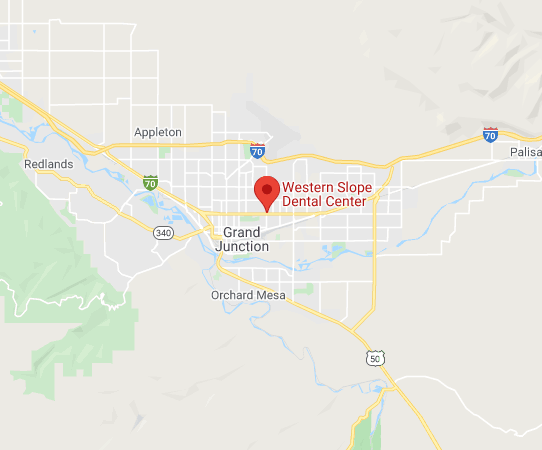How We Treat Temporomandibular Joint Disorder
Every person has a temporomandibular joint that connects their right jaw and left jaw to their skull. Most people do not give these joints a lot of consideration until the joints become sore and they struggle with several daily symptoms because of it.
This common oral health condition, known as temporomandibular joint disorder (TMJ), can be mild to severe and often results from unconscious teeth grinding at night. However, stress is not the only cause ofTMJ in Grand Junction CO.
What Causes TMJ?
Below are several other causes of TMJ besides stress and unconscious teeth grinding.
- Arthritis
- Disc cartilage erosion
- Genetic factors
- Frequently leaning on your chin
- Previous jaw injury
- Tumors or oral cancer
- Weak jaw muscles and/or connective tissues
We encourage you to familiarize yourself with the symptoms of TMJ and to schedule an evaluation at Western Slope Dental Center if you recognize one or more of them.
How We Treat temporomandibular Joint Disorder
Grinding your teeth at night is both a cause and a symptom of TMJ. Here are some of the other symptoms:
- Earaches
- Headaches
- Jaw tenderness and pain, including stiff jaw muscles
- Limited range of motion of the jaw
- Locked jaw or severe difficulty opening your mouth
- Pain when chewing food
- Popping or clicking sound when you open your mouth
- Your upper and lower rows of teeth do not fit together properly
When you have TMJ but do not know it or treat it, you can struggle with issues like daytime fatigue, irritability, and difficulty concentrating. Seeking treatment right away is the best way to improve your quality of life. The typical treatment plan for TMJ is to wear a mouthguard at night that prevents you from clenching your teeth. If that does not work for you, we will find the right solution for you to overcomeTMJ in Grand Junction CO.



